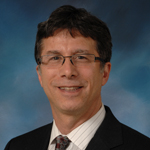Washington University School of Medicine in St. Louis has launched a new center devoted to turning innovations developed in the laboratory into improved treatments at the patient’s bedside.
The Biologic Therapeutics Center will foster translational medicine, also known as bench-to-bed research, encouraging collaboration across disciplines and helping provide infrastructure to support a quicker transition of knowledge from the lab to the clinic.
“As a driving force for most medical breakthroughs, basic research must translate more quickly and efficiently into treatment,” says David T. Curiel, MD, PhD, professor of radiation oncology and director of the Biologic Therapeutics Center. “One of the primary missions of an academic medical center is the development and testing of new therapies.”

Curiel
But the full potential of translational research has been difficult to realize as investigators struggle to remove barriers inhibiting translation of promising lab findings into treatments that help patients.
Under Curiel’s direction, the Biologic Therapeutics Center will play an organizational and oversight role in developing infrastructure that builds upon existing institutional strengths and capacities. In addition, it will promote alliances across disciplines to foster the translational possibilities embodied in biologic therapy efforts at Washington University.
Curiel says the center will help Washington University researchers navigate the challenging path new therapeutic agents must take to get from the lab into clinical trials.
“There are issues with regulatory approval, gaining funding for human clinical trials and managing intellectual property that the center can help facilitate,” Curiel says.
To aid in this bench-to-bed mission, the center, in cooperation with the Alvin J. Siteman Cancer Center, operates the Biologic Therapy Core Facility at Barnes-Jewish Hospital and Washington University School of Medicine. The Biologic Therapy Core Facility will assist investigators in the rapid translation of promising research into new ways to detect, treat, prevent or improve outcomes of cancer and other diseases.
Specifically, the staff of the Biologic Therapy Core Facility will work with investigators to adhere to Good Manufacturing Practices (GMP) and produce therapeutic agents such as new drugs, proteins and antibodies that meet the U.S. Food and Drug Administration’s requirements for use in human clinical trials.
“Traditionally, pharmaceutical companies played a big role in the early stages of drug development,” Curiel says. “But now they usually get involved in later stages. So it’s the critical mission of academic centers to do that early work — developing new therapeutic agents, testing and validating the concept in the lab and doing the early human trials.”
Access to key infrastructure, such as GMP facilities, is required to achieve bench-to-bed translation for human trials, according to Curiel. Successful development of such cores is ultimately based upon infrastructure already in place, which can then be further supported by National Institutes of Health (NIH) funding.
Curiel also notes the timeliness of the new center’s formation since the NIH is putting greater emphasis on translational medicine when it makes funding decisions.
“The ability to do bench-to-bed trials puts the university in the running for grants it might not be eligible for otherwise,” Curiel says.
Ultimately, Curiel says he would like to see translational medicine recognized as a unique academic discipline, including graduate coursework that focuses on translational therapeutics.
According to Curiel, such programs would help address the shortage of clinicians who can do translational medicine. To begin, the center will host the Translational Research Seminar Series in which world-renowned investigators present their bench-to-bed program.
The center’s lectures are accredited as Continuing Medical Education and cover topics from gene-based therapies for brain tumors to vaccines against cocaine addiction. The series begins Aug. 24 with a lecture on Gene and RNAi Based Therapies by Mark A. Kay, MD, PhD, director of the Program in Human Gene Therapy at Stanford University. For more information, visit http://btc.wustl.edu.
Washington University School of Medicine’s 2,100 employed and volunteer faculty physicians also are the medical staff of Barnes-Jewish and St. Louis Children’s hospitals. The School of Medicine is one of the leading medical research, teaching and patient care institutions in the nation, currently ranked fourth in the nation by U.S. News & World Report. Through its affiliations with Barnes-Jewish and St. Louis Children’s hospitals, the School of Medicine is linked to BJC HealthCare.
Alvin J. Siteman Cancer Center is the only NCI-designated Comprehensive Cancer Center within a 240-mile radius of St. Louis. Siteman Cancer Center is composed of the combined cancer research and treatment programs of Barnes-Jewish Hospital and Washington University School of Medicine.